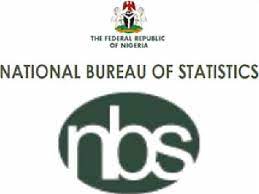The National Bureau of Statistics reported on Monday that Nigeria’s unemployment rate dropped to 4.3% in the second quarter (Q2) of this year from the 5.3% rate recorded in Q1 2024.
The Bureau, in its ‘Nigeria Labour Force Survey Q2 2024’ report published on its website, also disclosed that during the quarter under review, labour force participation rate in the country stood at 79.5%, higher than the 77.3% participation rate recorded in Q1 2024.
A further analysis of the labour participation rate on gender profile showed that the participation rate of men in the labour force under the reviewed period stood at 79.9% while for women the rate was marginally lower, standing at 79.1%
The Bureau also reported that the participation rate in the rural areas was higher at 83.2%, while the urban areas rate stood at 77.2%, indicating that most people were engaged in some form of work either for pay or profit, during the quarter under review.
On the unemployment among persons with upper-secondary education, the Bureau reported that the rate stood at 8.5% in the quarter under review, while the unemployment rate among youths aged (15-24 and 25-34 years) stood at 6.5% each, and represented the highest in the labour force participation rate.
According to the statistics agency, in Q2 2024 the Urban unemployment was 5.2% compared to the 6% recorded in the preceding quarter, while unemployment in the rural areas dipped to 2.8%, down from the 4.3% recorded in Q1 2024.
The report further showed that the share of those in wage employment was 14.4% in the second quarter this year, representing a marginal decrease from the 16% recorded in Q1 2024.
In addition, the report reflected that the rate of informal employment, which is the share of employed persons working in the informal sector and informal employment (including agriculture) in Q2 2024 was 93.0%, a slight increase from the 92.7$ rate reported in the preceding quarter.
The Bureau further indicated in the report data that the rate of informal employment among people living in rural areas was 97.5% in Q2 this year while the urban informal employment was estimated at 90%
Similarly, it noted that time-related underemployment rate, which is the share of employed people working less than 40 hours per week and declaring themselves willing and available to do more hours of work, in Q2 2024 dropped to 9.2%, indicating a decline from the 10.6% reported in Q1 2024.
The statistics agency stated that NLFS survey also collected information on the proportion of Youths aged (15-24 years) who are not in employment, education, or training (NEET), that is a response from youth who have given up looking for work or are unwilling to join the labour market due to youth marginalisation and disengagement.
It reported that during the quarter under review, the NEET rate was estimated to be 12.5%, representing a decrease from 14.4% rate recorded in Q1 of 2024.
The NBS clarified that the Q2 2024 NLFS’ data followed the review of the methodological processes for conducting Labour Force Statistics in line with international best practices and adaptation of the 19th International Conference of Labour Statisticians (ICLS) recommendation to the Nigeria standard.
It maintained that it had been consistently releasing the official labour force statistics for the country since Q4 2022, adding the Q2 2024 estimates as presented in the report showed the performance of different labour force indicators that will be useful for informing policy making in the country.
The Bureau added that this enhanced methodology using GPS-enabled electronic collection from sampled households across the country allowed for better quality responses, field monitoring and analysis of the data.
Similarly, it pointed out that the new methodology allowed the production of more policy-relevant indicators than what was produced under the old method using the questionnaire, thereby enabling the government and other users of the data to design and monitor Labour market policies and programmes within the country.






